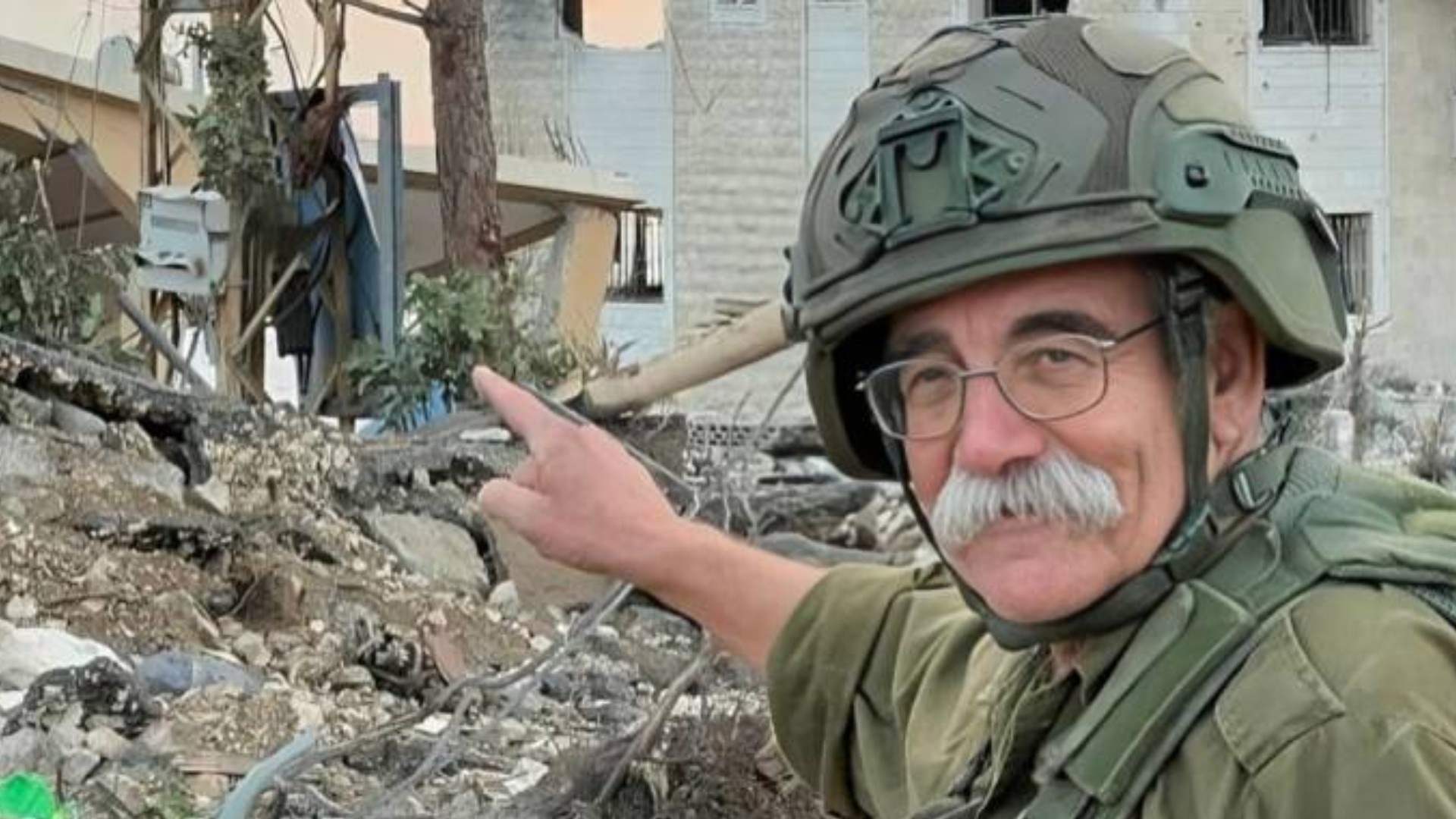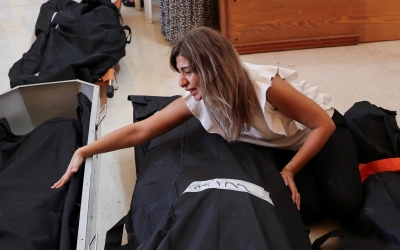Israeli archaeologist 'examining ancient site' in Lebanon killed by Hezbollah

A nationalist Israeli archaeologist and notorious settler who entered southern Lebanon with the army to reportedly examine an ancient fortress has been killed by Hezbollah, raising questions about Israel's intentions north of its border.
Zeev Erlich, 71, was killed alongside an Israeli soldier belonging to the Golani Brigade during a gun battle with Hezbollah fighters in southern Lebanon on Wednesday.
The chief of staff of the Golani Brigade, Yoav Yarom, was moderately wounded during the incident, while another commander was seriously wounded.
Erlich lived in an illegal settlement in the occupied West Bank for decades, where he also carried out extensive archaeological research. Many considered him a pioneer of the illegal settlement movement.
Archaeology and alleged evidence of ancient biblical sights have long been used by Israel as part of its justification for the illegal occupation of Palestinian land.
New MEE newsletter: Jerusalem Dispatch
Sign up to get the latest insights and analysis on Israel-Palestine, alongside Turkey Unpacked and other MEE newsletters
The Israeli military said on Thursday that Erlich entered Lebanon as a civilian, a claim his family has disputed.
A preliminary military probe found that Erlich was allowed to enter Lebanon with Yarom's approval.
A military spokesperson said Yarom did not have the authority to approve Erlich’s entry and that the proper process for civilian entry with troops was not followed.
The historian's family has disputed this account.
“Contrary to the [military] spokesperson’s claims, we clarify that [Erlich] was enlisted and treated in the field as a soldier,” his brother Yigal Amitai told Ynet.
“He was fully recognised as a soldier, entering Lebanon with the [military's] approval and accompaniment, albeit for archaeological research, as he always did in Judea and Samaria,” he added, using the Israeli names for the West Bank.
After he was killed, Israel’s military recognised the reservist as a major and granted him a military burial.
According to Israeli reports, Erlich entered Lebanon to inspect an ancient fortress he believed to be the burial place of Simon the Zealot, a disciple of Jesus.
Middle East Eye could not independently verify this claim.
The location of Simon the Zealot’s grave is unknown, with different theories placing it in a number of countries across the world.
'Pioneer of settlement'
Erlich’s death was mourned by several prominent Israeli settler groups.
In a statement on X, the Nachala movement expressed “deep sorrow” at his death and called him “a pioneer of settlement”.
The movement, which is actively making plans for the re-establishment of illegal settlements in Gaza, noted that Erlich wrote a book titled, Gaza since and forever: the history of Gaza’s Jewry.
It said that the historian’s works “strengthened the motivation” of Israeli soldiers.
A pro-settlement WhatsApp group called “Our Gaza Forever” also mourned Erlich's death.
The group described him as “one of the pioneers of settlement, explorer of the land of Israel and brave fighter”.

It also noted the significance of his book on Jewish history in Gaza and said his work "strengthened the connection of the Jewish people to the Land of Israel".
He was also eulogised by a number of far-right Israeli figures, including Finance Minister Bezalel Smotrich.
Over a number of decades, Erlich produced academic papers and books about Jewish history in the West Bank, regularly visiting archaeological sites in Palestinian villages under the control of the Palestinian Authority.
His visit to Lebanon on archaeological grounds comes just days after Michael Freund, a former deputy communications director for Prime Minister Benjamin Netanyahu, wrote an inflammatory column in the Jerusalem Post titled, "Southern Lebanon is actually northern Israel".
Israel has for decades used archaeology as a tool for expanding its control in the occupied Palestinian territories.
For example, in Silwan, in occupied East Jerusalem, excavation and subsequent tourism have been used to justify the displacement of Palestinians.
Since the late 1970s, the Israeli government has been excavating in the Palestinian neighbourhood of Wadi Hilweh in Silwan in search of evidence of ancient Jewish kingdoms.
The excavations are carried out by the Israel Antiquities Authority and often take place directly underneath Palestinian homes. Settler groups such as Elad also seek to remove Palestinians from Silwan to cement Jewish presence in the area, as well as perform archaeological digs.
Middle East Eye delivers independent and unrivalled coverage and analysis of the Middle East, North Africa and beyond. To learn more about republishing this content and the associated fees, please fill out this form. More about MEE can be found here.




